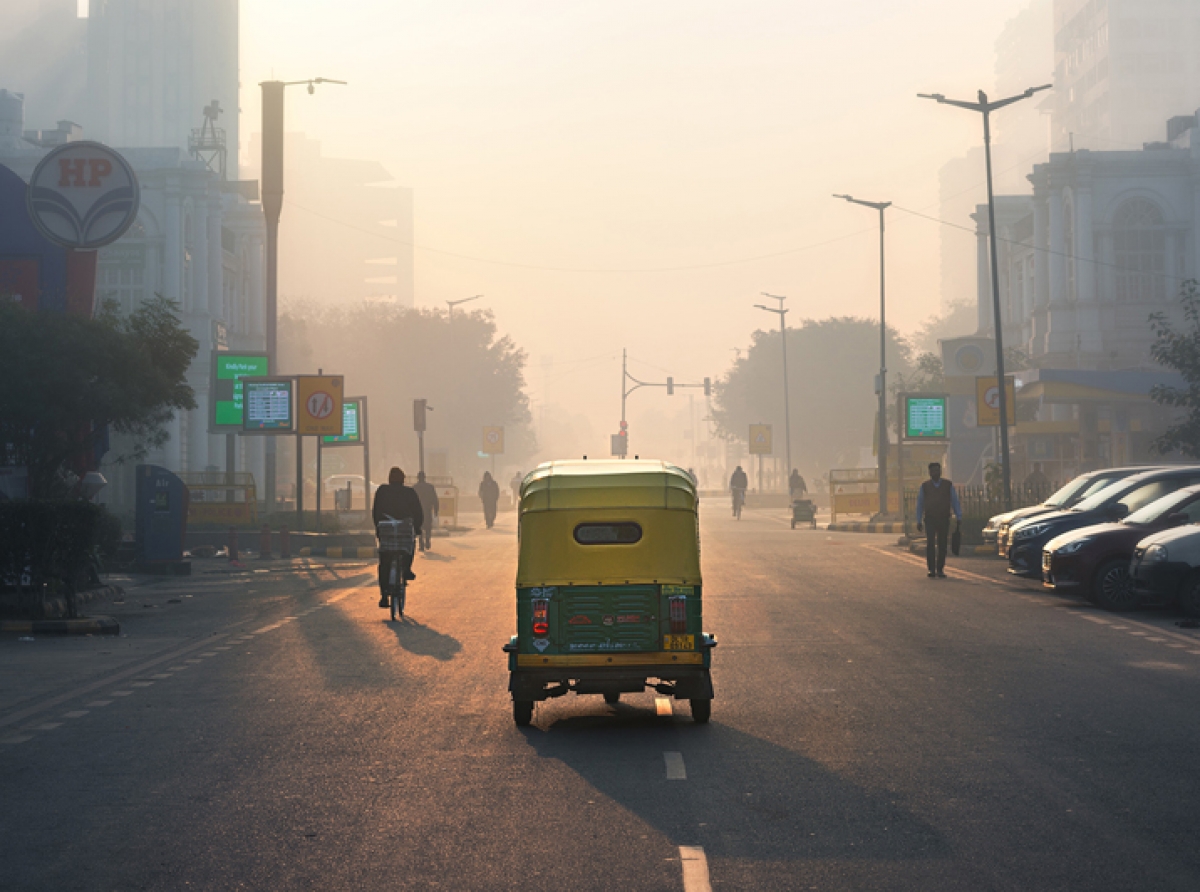Clean Air Initiatives and Experiences

At a Glance:
IIEC provides science-based and sector-specific expertise to the governments, donors, industry, and civil society partners in a range of clean air and better health-related areas, including building the competence of the central, state, and city pollution control officials to plan and conduct air quality and climate change mitigation programs; working with energy service companies and heavy industries to improve efficiency and lower costs through clean energy technologies; cementing partnerships among South and Southeast Asian regional institutions working in climate change and air quality to amplify their combined efforts; and helping to unlock investments in energy-efficient heating and cooling systems for buildings through the Asian Development Bank (ADB) Sustainable Energy for All Energy Efficiency Accelerator Platform.
Our Experience:
IIEC’s team of 25 professionals has extensive experience in leading air pollution mitigation and clean energy-related activities and in driving markets for innovative technology, policy, and regulatory solutions. IIEC is currently leading for the UN Environment Program, Swiss Development Corporation, and the Climate and Clean Air Coalition (CCAC), as well as philanthropies such as ClimateWorks and the MacArthur Foundation. IIEC has established key partnerships with regional air quality and climate change institutions and programs to further leverage the impact of its work on air quality-related issues.
Fostering Partnerships for Tackling the Declining Air Quality in India-UNEP (2017): Responding to UN Environmental Assembly’s call to UN Environment to support national efforts in addressing air pollution issues, IIEC in collaboration with UN Environment organized roundtables to bring together key stakeholders and experts from the public & private sectors, international donor community, academia, and financing agencies working for the cause of combating air pollution across urban centers in India. The roundtables witnessed strategic discussions around exploring opportunities for partnerships amongst the donor agencies and public and private sector agencies in India for effective implementation of air quality improvement measures and identified key areas to work in India: 1) Effective mapping of knowledge about the contribution of various sources to air pollution in India, 2) Build capacity of State pollution Control Boards in effective monitoring of air quality and data analysis, 3) Develop monitoring protocols for monitoring health and other human impacts of air pollution, and 4) Work with international agencies for leveraging international climate finance to steer domestic action on air pollution.
Swiss Development & Cooperation (SDC) Funded – Support India in Design of Clean Air Program (CAP) (2017-2019) – The program was designed to help SDC develop a long-term intervention strategy on corrective and preventive actions for improving the air quality and combating impacts of climate change in affected regions in India. The interventions were designed in a way to leverage international experience from the USA, Switzerland, China, Germany, and Australia for tackling the challenges posed by air pollution in the specified regions in India.
 The project was designed to address the five specific objectives namely:
The project was designed to address the five specific objectives namely:
- Review of trends in the source apportioned air pollution levels.
- Map policies and sector-specific programs and schemes on air pollution in India.
- Identify current gaps and stressed regions
- Identify specific areas of interventions for air pollution abatement and propose a project plan.
- Suggest capacity-building areas for both public and private sector stakeholders.
The following recommendations made by IIEC has been included in the national level project designed by SDC:
- Expand air quality monitoring network – provide an increased number of continuous monitoring stations in each city. Set air information systems & centers for air quality forecasting
- Mandatory Certifications of monitoring institutions/instruments
- Strengthen the implementation mechanisms (such as strengthening of institutional structures, enforcement of standards, setting up technology assessment cells, providing technology support, etc.)
- Increase focus on awareness and capacity building drives
- Conduct focused Source Apportionment Studies and develop emissions inventories for each of the cities and develop city-level Clean Air Action Plans
- Review air quality standards and conduct health impact studies
Reducing Air Pollution in India’s Industrial Clusters through Smart Energy Management, Climate and Clean Air Coalition (CCAC), (2019 – 2021): UN Environment and IIEC have launched a project to build air quality monitoring and tracking capacity among government, industrial, and utility partners, and to demonstrate and deliver cost-effective air pollution reduction strategies in two industrial Indian states—Gujarat and Odisha—through smart management of industrial and utility energy use. The project aims to transform efforts to mitigate air pollution from India’s industrial and power sectors by 1) improving understanding among government, industrial, and utility partners of the linkages between air quality and utility/industrial energy management; 2) demonstrating the potential for reducing air pollution levels to achieve multiple health-related and economic benefits through smart management of electricity generation, transmission, distribution, and industrial end uses; and 3) developing and testing an approach for attracting bundled private finance for clean energy solutions. These activities are being carried out in industrialized areas of Gujarat and Odisha States and in the city of Agra, where air pollution is a critical concern. https://www.ccacoalition.org/en/activity/reducing-air-pollution-india%E2%80%99s-industrial-clusters-through-smart-energy-management
Partnerships with Regional Institutions and Programs (2016 – Ongoing) – IIEC has established key partnerships with Regional Air Quality and Climate Change Institutions and Programs to widen the impact of its work on Air Quality related issues. To date, the partnerships have been established with the Asia Pacific Clean Air Partnership (APCAP), Clean Air Asia (CAA), Climate and Clean Air Coalition (CCAC), UNDP, UNICEF, World Health Organisation (WHO), UN Environment, and Public Sector Agencies in Bangladesh, Bhutan, India, Maldives, Nepal, and Sri Lanka. The Clean Air Asia and IIEC are working on a project for UN Environment in South Asia. IIEC and UN Environment are in close discussions with Children’s Investment Fund Foundation (CIFF) for funding support for Air Quality and Smart Energy Management Program (AQ-SEMP). The Asia Pacific Clean Air Partnership (APCAP) has published about IIECs programs in their June 2020 Newsletter.
